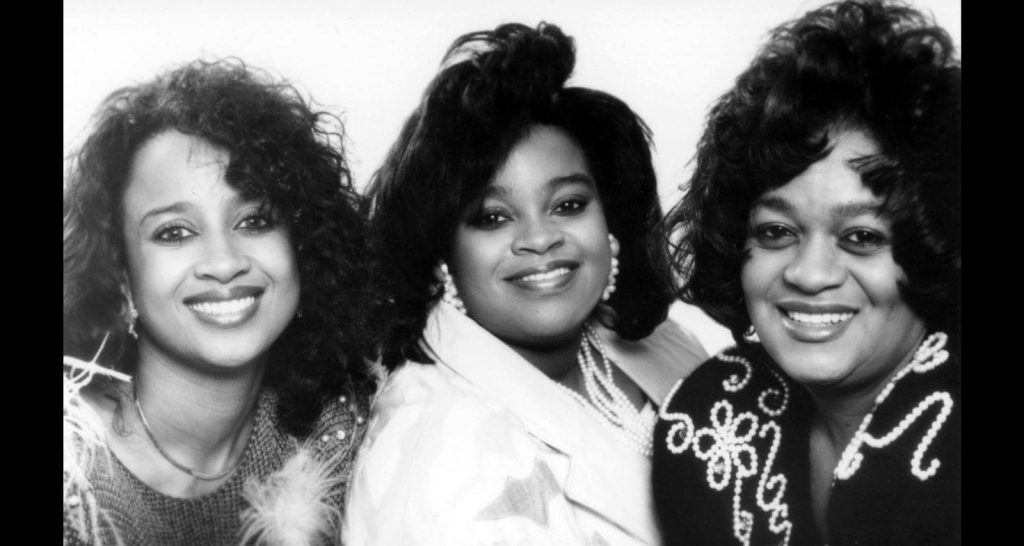By Joshua Chizoma
In the course of history, music has often been deployed by religious adherents – in this context, Christians – to interface with God. For the practising Christian, music serves a variety of purposes. It can be used in worship and thanksgiving, perhaps its commonest use. Thus, there are various songs whose lyrics celebrate the majesty of God or extol God’s faithfulness.

Music can and has been deployed as a vehicle for warfare. A case in point is the powerfully moving story in Chapter 18 of the 2nd Book of the Chronicles, where the Israelites went to war with little else but the melodies in their hearts and worship in their hands.
Music also accompanies prayer. It is commonplace to find people who cannot pray except there is music playing nearby. This explains why churches invest heavily in their choirs, making sure the entire repertoire – gowns, instruments, and technical equipment – is top-notch.
Music in Christian worship has its historical antecedents. A starting point is perhaps Judaism, the religion from which Christianity can trace its origins. Temple worship as recorded in the Old Testament involved elaborate ceremonies, including songs of worship and adoration. Genesis 4: 21 gives the first instance of music being used in the worship of Yahweh, as Jubal, one of Noah’s ancestors was called “the father of all who play the flute and harp”. Exodus 15:20-21 records the instance where Miriam, sister of Moses, led other women in Thanksgiving to God after the Israelites had successfully crossed the Red Sea.
King David is the Biblical character to whom the most music in the entire Scripture is attributed. He was not just a performer – his skill at the harp helped to ward off the demons that tormented King Saul – but was also a poet and songwriter, the book of Psalms being a testament to his efforts.
The advent of Jesus marked the beginning of a new era, which (seemingly) placed less emphasis on music. Of the four gospels, Luke was the only one that “contained songs”: the first chapter of Luke speaks about the song of Mary upon receiving the message of Jesus’ birth, and a few verses down the line, we are introduced to the song of Zacharias the Priest. The epistles do not reference songs in the strictest sense, although there were several instances where Paul the Apostle instructed the early believers to sing spiritual songs and make melody unto the Lord. The Book of Revelation is laden with several hymns, including the ones that form the now-famous Agnus Dei.
Away from old scriptural text, gospel music has its roots in the music tradition of the African-American church. Beginning in the 1800s, African-American churches in the United States began incorporating music into their services. The songs were mostly led by choirs who were distinguished by their usually colorful robes. Hymns, which were accompanied by hand-clapping and foot-stomping, were popular among such congregations. However, Thomas A. Dorsey, commonly referred to as the father of gospel music, is credited with developing the first formal structure for gospel music. A former jazz pianist and composer, Dorsey introduced a form of gospel music that incorporated jazz and blues. At the time, this was strongly criticized by church leadership, who saw Dorsey’s efforts as an imitation of the world. However, by the 1930s, Dorsey’s gospel blues had gained traction and mainstream acceptance in the United States. Dorsey eventually teamed up with vocalist Mahalia Jackson. Dorsey composed the songs, while Jackson sang them.
Gospel music achieved mainstream popularity and acceptance through the work of artists like Aretha Franklin and Edwin Hawkins Singers. Franklin’s 1968 hit song “Think” topped mainstream charts, and Hawkins’ “O Happy Day” earned him a Grammy Award for Best Soulful Gospel Performance in 1970. Contemporary gospel music sprang up in the 1970s, and in the 1990s the sub-genre was heralded by artistes like the Clark Sisters, Yolanda Adams, and Kirk Franklin. These days, gospel songs are not the exclusive preserve of African-American Christians, with Caucasians like Dolly Parton, Tamela Mann, Chris Tomlin, and Jeremy Camp leading the way.

In the Nigerian music scene, the use of songs in Christian worship has evolved. In previous decades, worship songs largely featured indigenous language and ran along with traditional themes. The likes of Gozie Okeke, Chinedu Nwadike, Bro. Israel Anyaele, Chioma Jesus, and Chinyere Udoma, as well as performers like Yinka Ayefele, Tope Alabi, operated in this sphere. Up north, people like Chris Delvan, Chingtok Ishaku, and Solomon Lange held the fort.

The new school of Nigerian gospel artistes comprises musicians who render their art primarily in the English language. In recent times, Nigerian gospel songs have been scoring huge streaming numbers, aided in no small way by social media virality as well as effective promotional strategies that target Nigeria’s large Christian population.
The evolution of gospel music has also translated to the metamorphosis of its different sub-genres. At the moment, the gospel is represented across different music genres such that it is unsurprising to hear songs on the radio that can be categorized as “gospel jazz” or blues. Gospel rap has since become mainstream, with Lecrae getting to win two Grammy Awards in the early 2010s.

Another gospel music expression that is quickly gaining prominence is that involving chants. Characterized by their solemn, almost-mystical sounds, chants are mostly devoid of lyrics, backup singers, or any of the markers of regular gospel songs. Chanters typically sing in freestyle fashion to the accompaniment of string instruments. More often than not, recordings of chants are done in church services or live YouTube recordings with little or no preparations of premeditation. Some popular chants include Lawrence Oyor’s “The Train” and Victoria Orenze’s “Spirit Chants”, among others.

Chants bear a rhythm that is almost similar to spur-of-the-moment rap verses. However, the difference is that chants are accompanied by solemn dirge-like tunes, unlike the upbeat tunes that characterize rap songs. Furthermore, when it comes to gospel chants, a phrase or a couple of phrases are sometimes repeated for long periods, with singers going along with the “leading of the spirit”.
Chants usually feature long sessions of speaking in tongues, which suggest the “active involvement of the Holy Spirit” in these renditions. It is not uncommon to see worship leaders praying for the entire length of the chants, but somehow melodic symphony is still achieved. In Lawrence Oyor’s “The Train”, for instance, the minister does not utter a single word of English throughout its 5-minute run time.
Chants are peculiar, and because of that they often serve a distinct purpose for listeners. Looking for a gospel chant that is solely for entertainment would be an exercise in futility. Sure enough, every form of music serves to entertain, so it would be unsurprising to find that people derive pleasure listening to chants. However, it is pertinent to note that gospel chants have a higher purpose: the heavily spiritual undertones are unmistakable. Undeniably, there is something in the chants that tugs at one’s spirit and loosens one’s tongues, making it easy to glide on the wings of the (Holy) Spirit.
Unlike gospel songs, chants are not performed as choir bits during church services. It would be ridiculous to mimic speaking in tongues, and even if that is done, it would be impossible to recreate the sort of spiritual ambiance borne by gospel chants. They are often spontaneous, recorded in one take. Such is the nature of chants that no one does covers of them, and even the originators themselves do not do remixes.
Chants are made for Christians by Christians for the attainment of Christian purposes. With chants, no singer tries to write lyrics that appeal to any particular demographic or plan to shoot elaborate music videos. Anyone who listens to chants does so for edification rather than entertainment. It stirs the religious to prayer and divine communion; even in the absence of words, everyone with a spiritual ear hears the unspoken calls and heavy groaning in the songs.
It isn’t certain when exactly gospel chants became so popular with Nigerian gospel singers. However, the truth is that they have come to stay. Gospel music has come a long way, and perhaps, even beyond rap and chants, there may be some undiscovered expression brewing in the distant future. Hopefully, our generation will be here to witness its emergence.





Lovely piece.